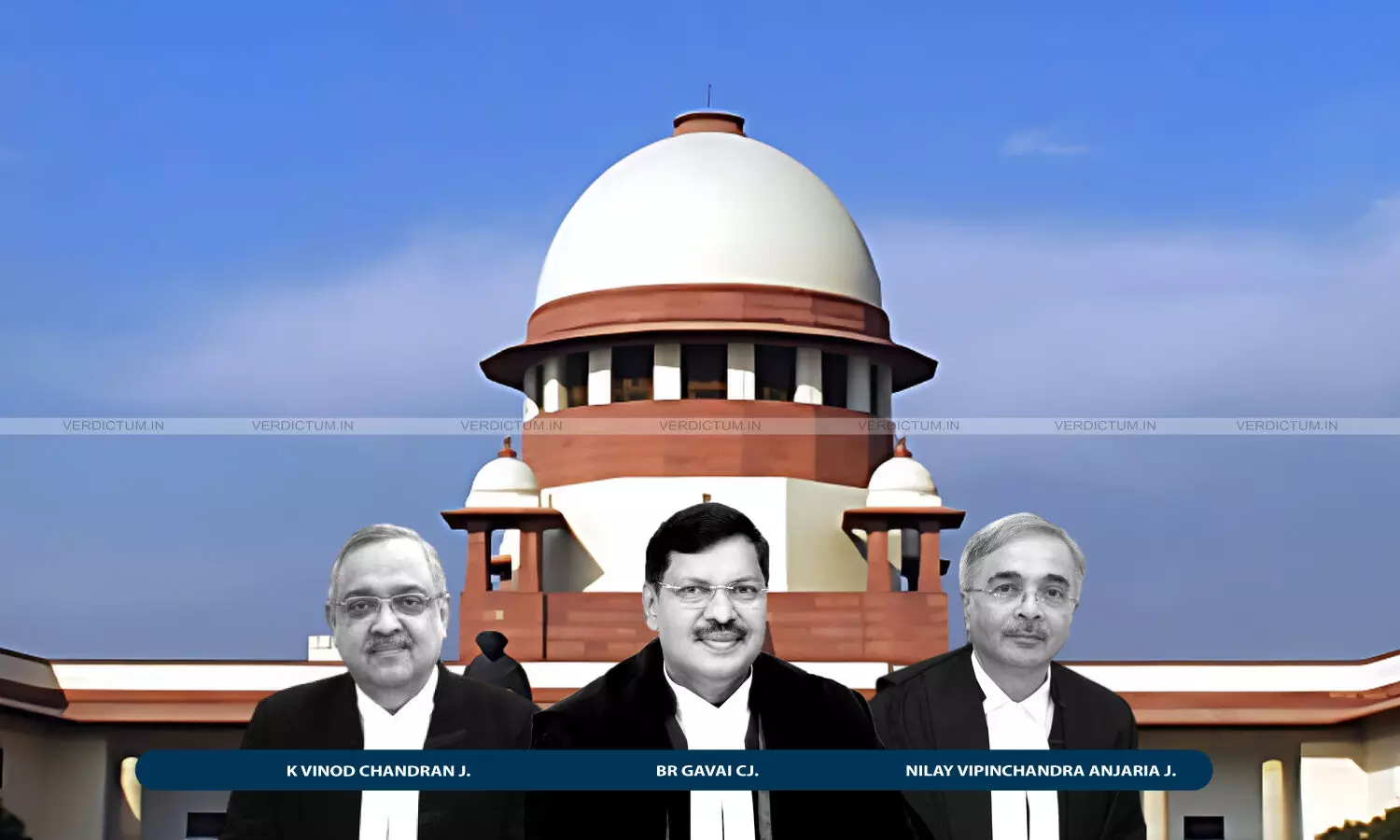
CJI B.R. Gavai, Justice K. Vinod Chandran, Justice N.V. Anjaria, Supreme Court
Reservation Is An Executive Function: Supreme Court Criticises Calcutta High Court Stay On OBC Inclusion & Sub-Categorisation
 |
|The Court found the Calcutta High Court’s stay on the OBC notifications to be prima facie completely erroneous and indicated that the matter required reconsideration by a differently constituted bench.
The Supreme Court today heard the petition by the Government of West Bengal challenging an order of the Calcutta High Court staying notifications related to identification and classification of certain groups as Other Backward Classes (OBCs), as well as their sub-categorisation and percentage of reservation.
A Bench of Chief Justice of India BR Gavai, Justice K. Vinod Chandran, and Justice N.V. Anjaria observed, “This is surprising. We will issue notice in this. How can the High Court stay? Reservation is a part of the functions of the Executive. Since Indira Sawhney...Supreme Court has said this.”
Senior Advocate Kapil Sibal, appearing for the State of West Bengal, submitted, “There are 9 lakh seats to be filled. A stay may be imposed.”
Advocate appearing for the Respondent referred to the Supreme Court’s decision in Ram Singh v. union of India (2015), and argued that reservations under the West Bengal Backward Classes (Other Than Scheduled Castes and Scheduled Tribes) (Reservation of Vacancies in Services and Posts) Act, 2012 must comply with Section 16.
He further submitted “Indira Sawhney specifically states that the OBC Commission has to be consulted... no data collected, only an interim report is made.” Disputing this, Sibal argued, “The Commission has done that exercise... that’s not the High Court finding. With greatest respect, you are not telling the facts to the Court.” He added, “The whole exercise has been done. That’s not challenged. That is not the finding of the High Court when staying this matter.”
The Court referred to the counter-affidavit filed by the OBC Commission before the High Court. The CJI remarked that if the State was agreeable, the Court would direct the High Court to decide the matter within a stipulated timeline, and that status quo would be maintained in the meantime. “Commission has followed some methodology. Whether it is correct or not correct… let the High Court see. Prima facie the order is completely erroneous. We’ll request the High Court to do it in 6 weeks. Can request the Chief Justice to constitute a special bench,” CJI Gavai said.
The matter has been posted for further consideration after two weeks.
Background
A batch of Public Interest Litigations (PILs) challenging the identification and classification of 77 classes as OBCs in West Bengal was disposed of by the Calcutta High Court on May 22, 2024. The Court struck down Section 16 and Section 5(a) of the West Bengal Backward Classes (Other than Scheduled Castes and Scheduled Tribes) (Reservation of Vacancies in Services and Posts) Act, 2012, for allowing executive inclusion of classes and sub-classification of OBCs without legislative sanction.
Despite this, the State issued fresh notifications in 2025 reintroducing the same classes and increasing the OBC reservation percentage to 17% (10% for OBC-A and 7% for OBC-B), prompting fresh legal challenges. The petitioners contended that the State was acting in “hot haste” and bypassing legislative procedures. Observing prima facie merit, the High Court stayed the implementation of several notifications dated May and June 2025, including those sub-categorising OBCs and adding new classes to the list.
Cause Title: State of West Bengal v. Purabi Das (SLP(C) No. 17422/2025)